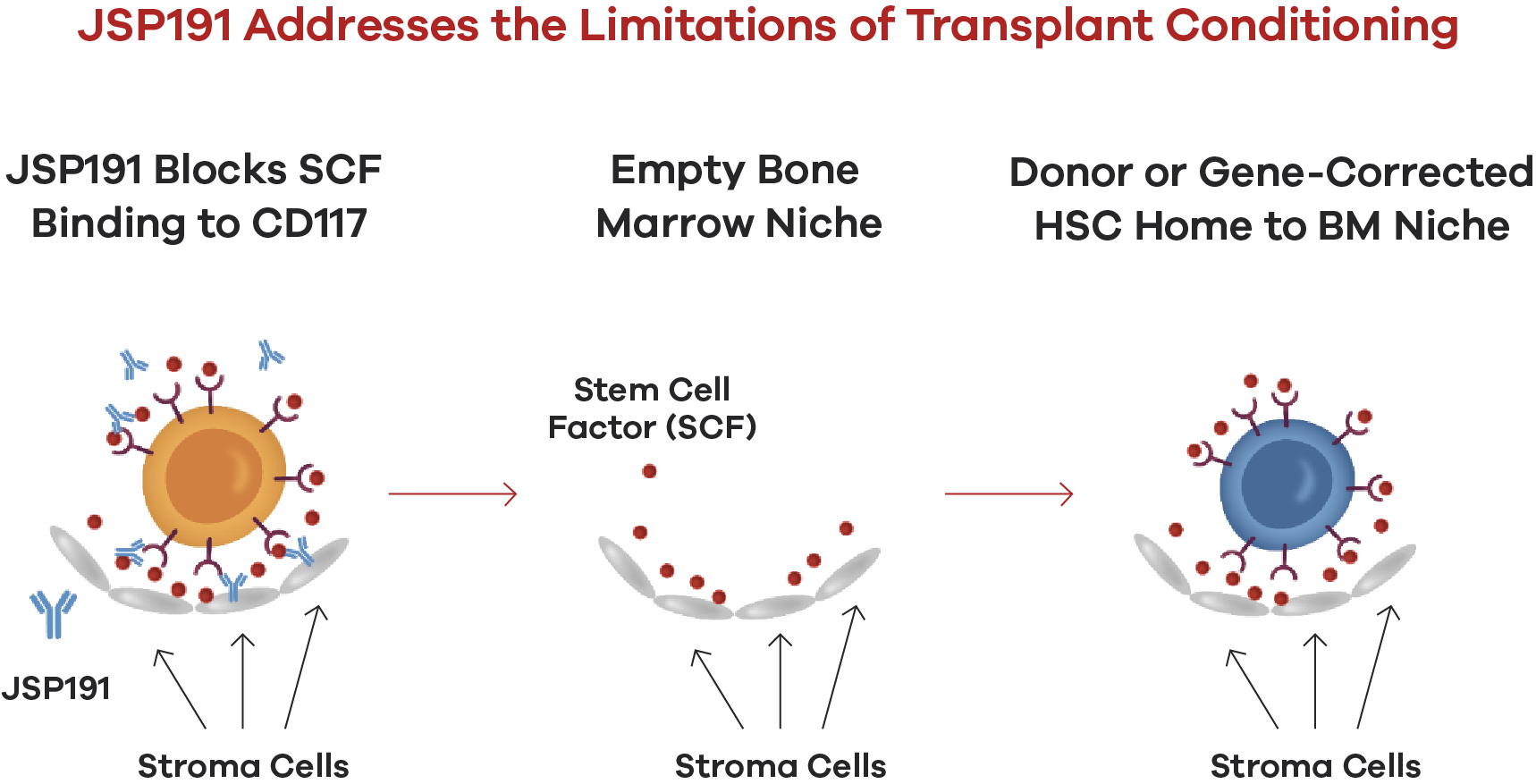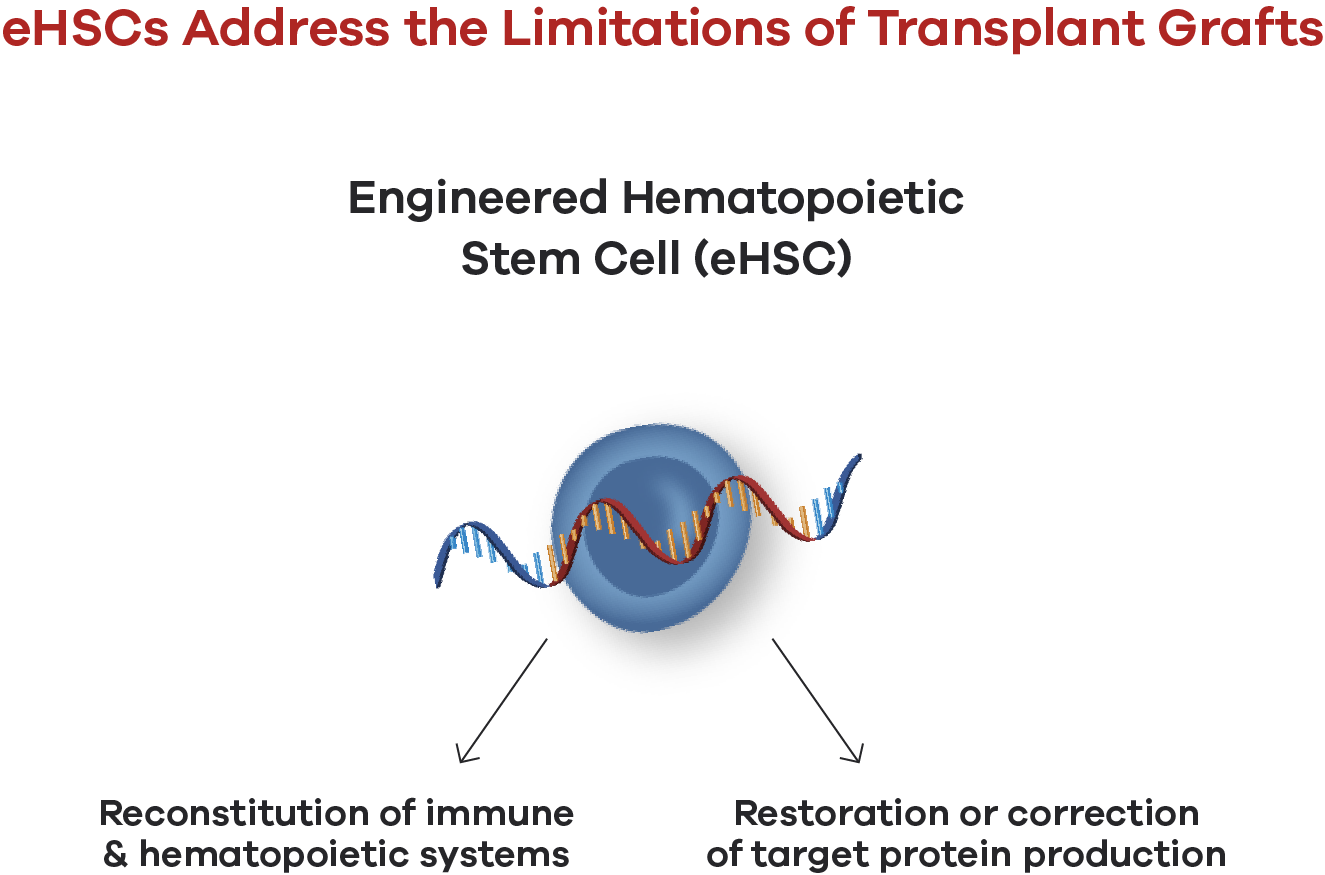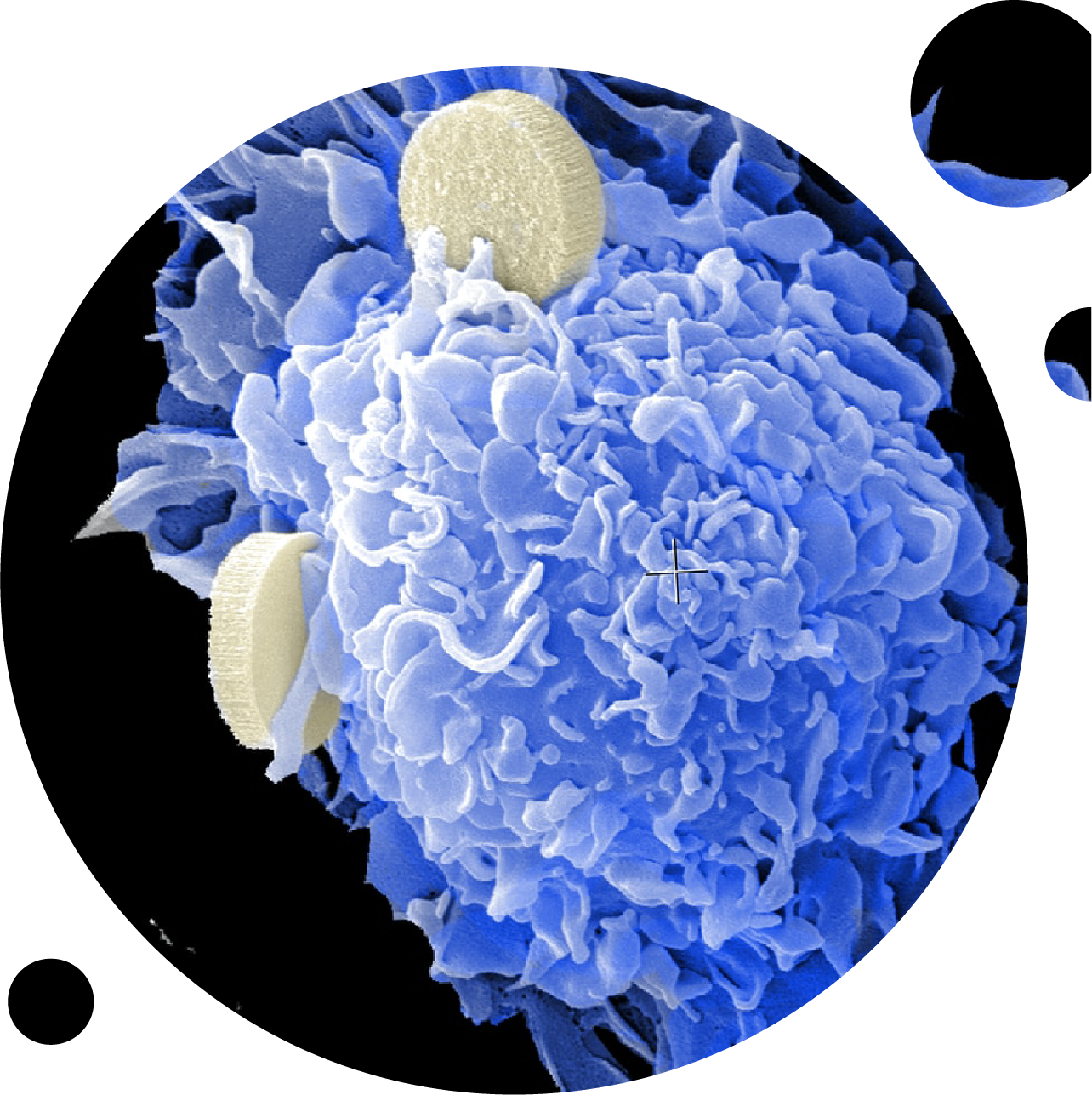Addressing Limitations Of Transplant Conditioning
Hematopoietic stem cell transplantation is among the most widely practiced forms of cellular therapy and can cure many diseases. It has the potential to cure an even greater number of diseases but toxicity from current chemotherapy conditioning technologies limits its broad application and the number of patients able to benefit. Currently, patients must receive non-specific conditioning agents to prepare their bone marrow for hematopoietic stem cell transplantation.
The standard of care is chemotherapy/radiation, which has several limitations:
- Major toxicities & adverse events (cancer, infection, infertility)
- Hospitalization in isolation
- Life-threatening risk
Our highly differentiated anti c-Kit antibody briquilimab, is designed to address these challenges.


